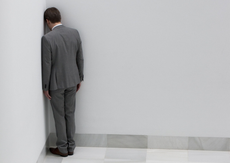The Independent's journalism is supported by our readers. When you purchase through links on our site, we may earn commission.
Do we really need scientific research to believe rape victims?
A report has found that victims of sexual assault who were drunk can still report information accurately

Before I tell you what I’m on about, I’m going to walk you through a slightly strange hypothetical scenario. Bear with! Bear with! All we be revealed in due course.
Imagine that you go to a party, you have a few drinks and then the host offers to show you some pictures of their holiday up in their bedroom. You toddle to the room with them, but once it’s just the two of you alone they suddenly leap on you and deliberately break your arm. In your drunken state, you might be confused by this and the enormity of what’s happened might not sink in. The next morning, you awake in a hung-over fug and realise with increasing horror that your arm is completely broken. Thinking through the nights events you realise that you were in fact assaulted by the host. When you go to the police to report the assault they quiz you about how much you drank and the gaps in your memory. You can’t remember all the details and struggle to piece it all together. They look at you dubiously. ‘But here, look! My arm is broken! I’m not making it up! The policemen shake their heads and tell you it’s your word against theirs, maybe you were in a fight? Maybe you encouraged the host to break your arm? Who can say? The bottom line is you have a flimsy case. You leave, humiliated, confused and ashamed.
Of course, I’m not really talking about a broken arm. Victims of sexual assault and rape often find that their testimony is called into question because they were drunk when the crime took place. The numbers of rape cases referred to prosecutors for charging has fallen by more than a third since 2011, despite a rise in offences recorded by police (as revealed to the Bureau of Investigative Journalism by the Crown Prosecution Service) and 90 per cent of rape cases go unreported in the UK. This is despite terrific awareness campaigns, like #ThisDoesntMeanYes, which tries to get the point across that a girl can dress however she likes, it still doesn’t mean she wants to have sex with anyone, and charity End Violence Against Women’s tireless work.
It’s good then that a new study (reported in the Daily Mail this week) will hopefully stop police from dismissing sexual assault claims from women who were drunk at the time. The study by Doctor Heather Flowe and a team at the University of Leicester shows evidence that victims of sexual assault who were drunk during the crime can still report accurate information when interviewed by the police. Findings from the study are now being applied to develop National Guidelines for how the police could interview sexual assault victims who were intoxicated during the crime.
Although I’m pleased that the research is being taken seriously, it still makes me want to bash my head against the table in impotent rage that there was even need for a study like this in the first place. Why, when a woman reports that she has been raped while drunk is she not believed? I have sat in on a trial where a girl claimed she had been assaulted and it is an incredibly difficult thing to watch. Imagine being that girl -- having to stand up in front of a group of strangers, and the person who raped you, and recount in detail, blow by blow, what happened to you. Imagine having every gap in your memory questioned? Why would you choose to make that up?
Another finding from the study was that women will be more likely to have a patchy memory of the events if they had consumed booze. Often in trials, a full and complete testimony is considered more truthful but the study finds the women were no more likely to get the details that they did remember wrong than those who had not had a drink. Of course, discrepancies might occur where they are put under pressure to remember something that they can’t recall. That’s something taking place now in the trial of Owen Labrie, where at his school there is allegedly a tradition of giving a "senior salute”, whereby older students invite younger students to have sex with them. The defence attorney has questioned the alleged victim repeatedly on inconsistencies in her testimony.
The study by its very existence, speaks to a broader issue that, even in 2015, the onus still seems to be on the woman to provide evidence that she is credible enough to be believed. Why is the assault that causes a broken arm easier to believe in?



Join our commenting forum
Join thought-provoking conversations, follow other Independent readers and see their replies